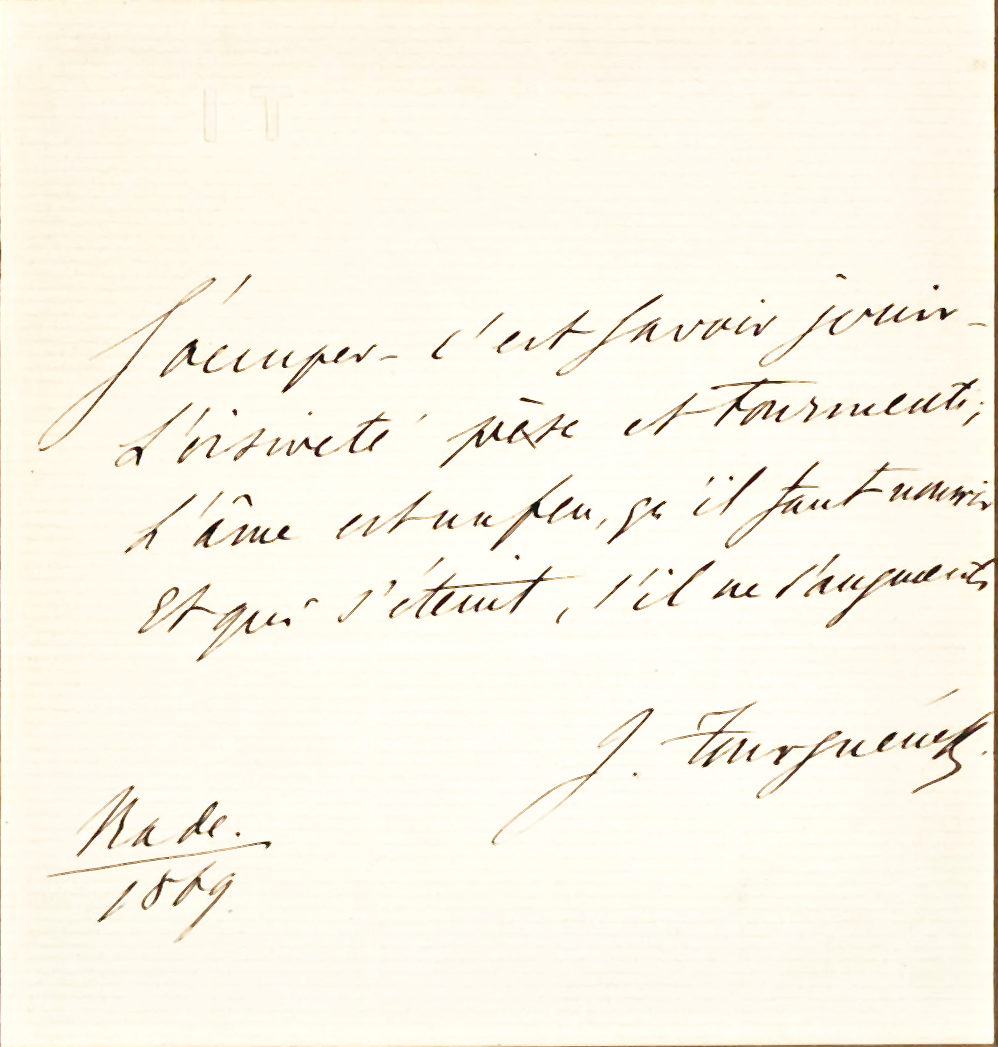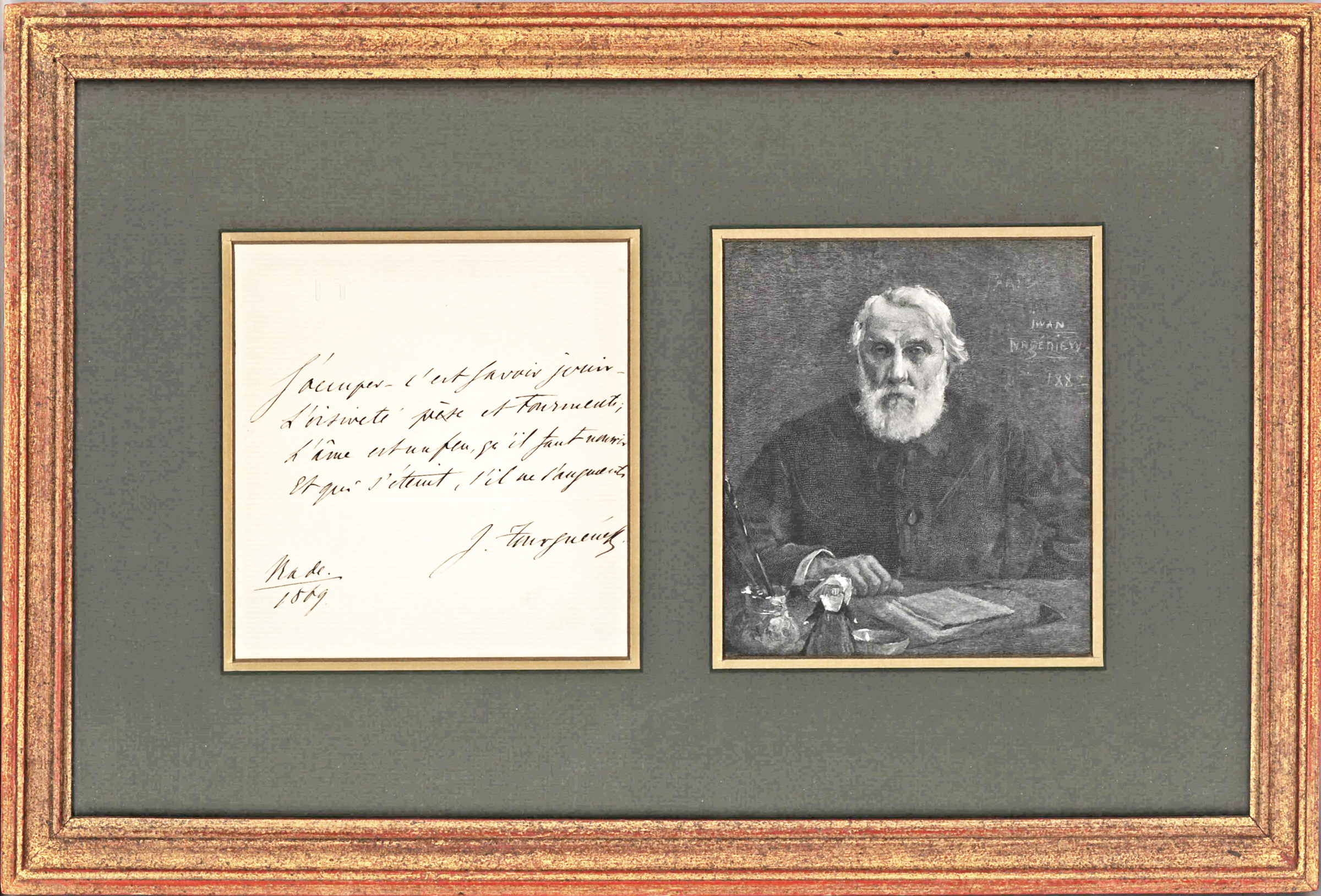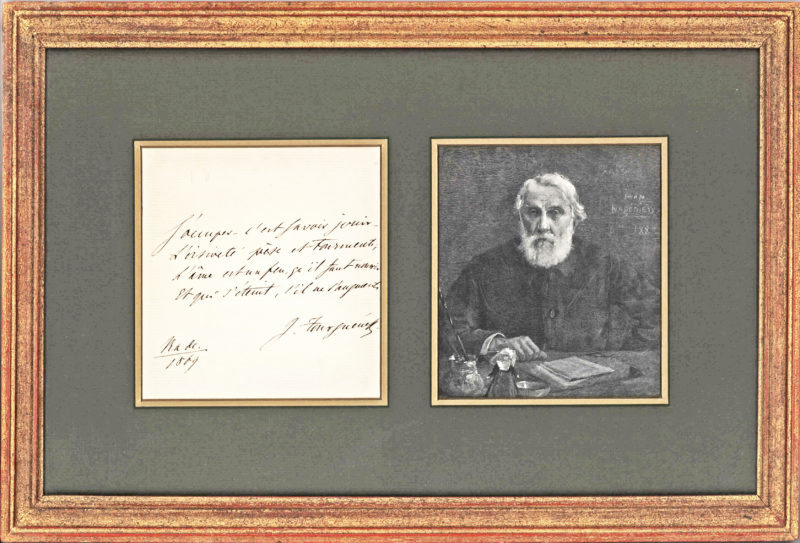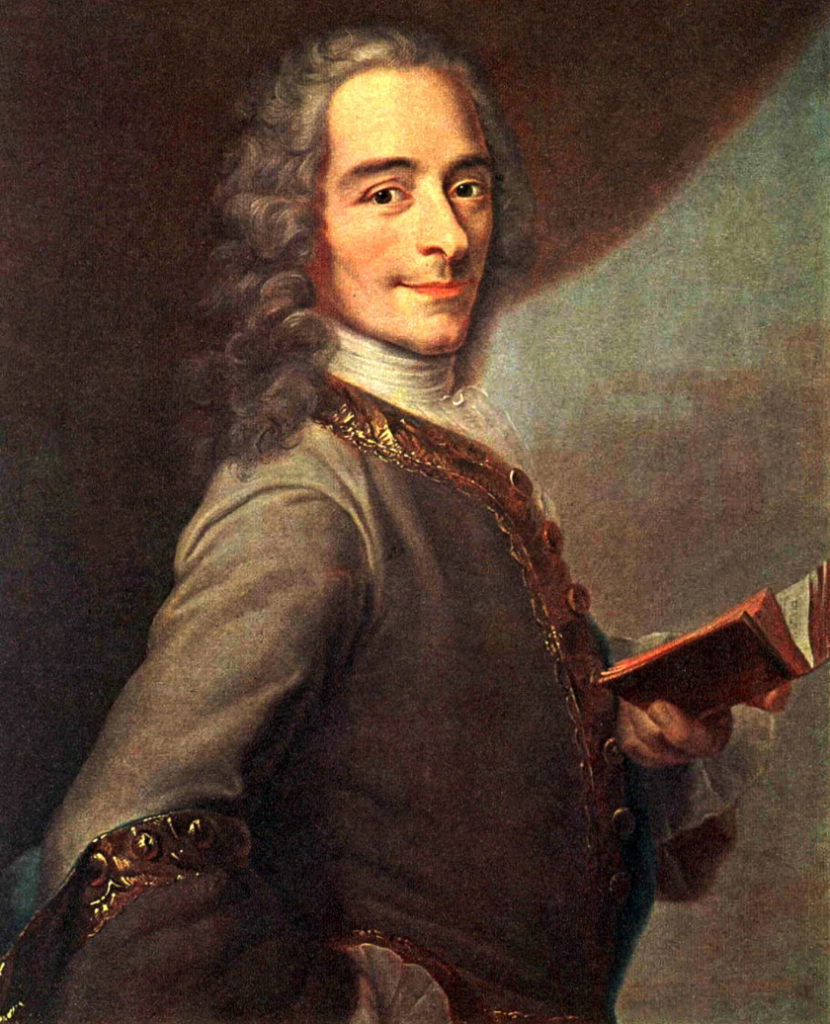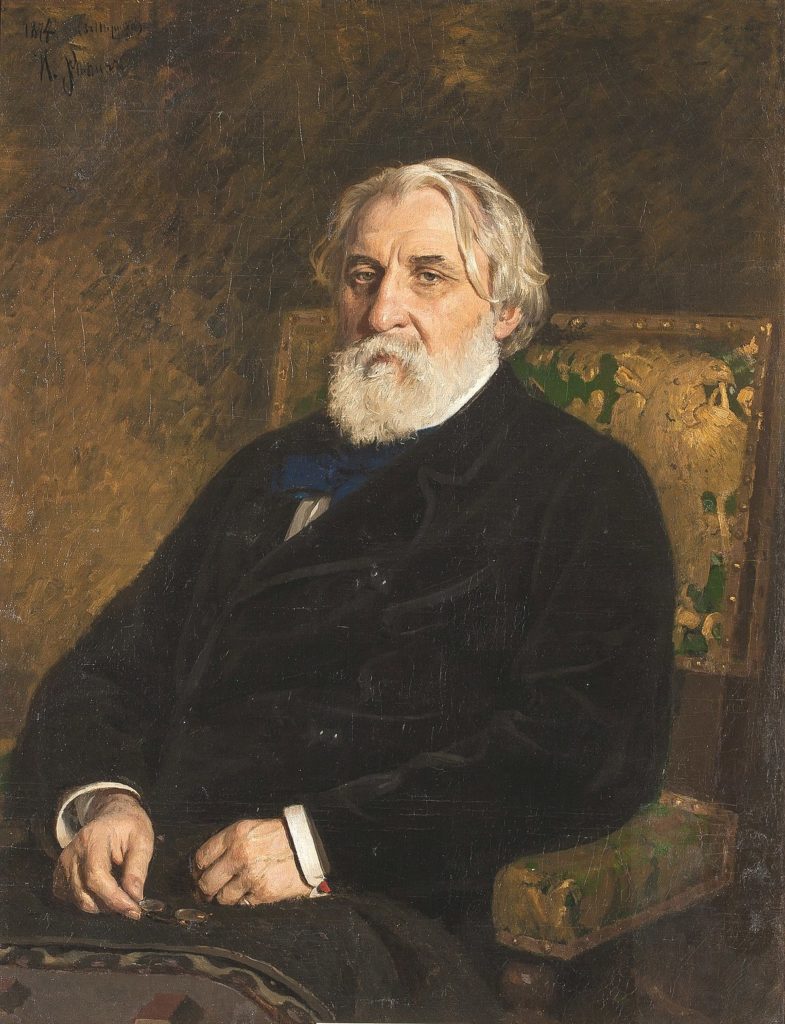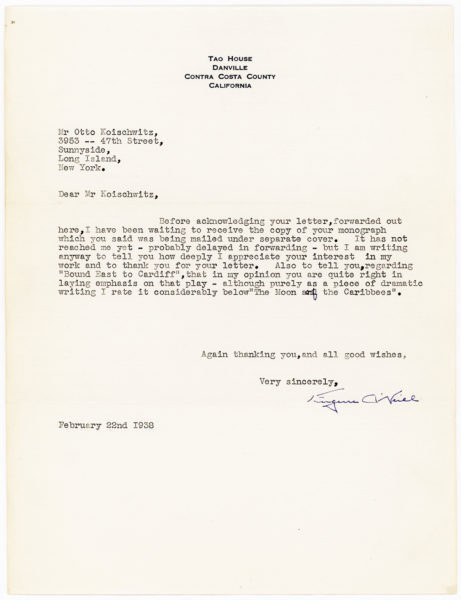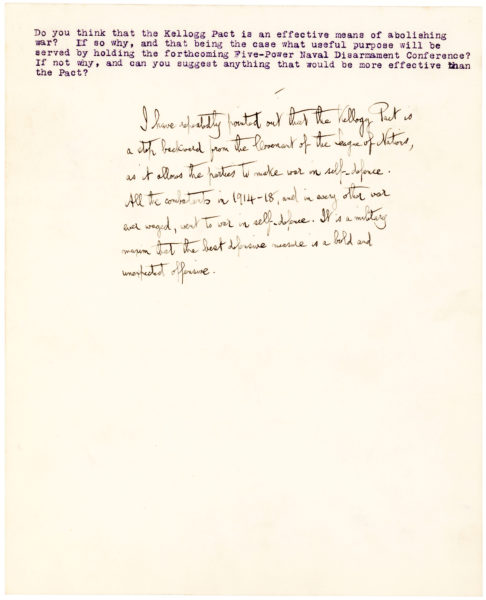TURGENEV, IVAN. (1818-1883). Russian novelist, poet, and playwright; his novel Fathers and Sons is a masterpiece of 19th-century Russian literature. AMsS. (“Ivan Tourguineff”). 1p. Small 8vo. Bade[n], 1869. In French with translation on stationery blind-embossed with his initials. A quatrain from part of a longer work (“Stances Irregulières”) that Enlightenment philosopher Voltaire (1694-1778) sent to King Frederick the Great’s sister, Princess (later Queen) Louisa Ulrika of Sweden (1720-1782), in January 1747.
“S’occuper c’est savoir jouir
L’oisiveté pèse et tourmente;
L’âme est un feu, qu’il faut nourrir
Et qui s’éteint, s’il ne s’augmente”
[Translation:]
“To keep busy is to know how to enjoy
Idleness weighs and torments;
The soul is a fire, which must be fed
And which goes out, if it does not grow”

